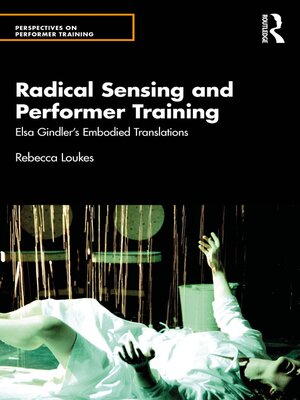Radical Sensing and Performer Training
ebook ∣ Elsa Gindler's Embodied Translations · Perspectives on Performer Training
By Rebecca Loukes

Sign up to save your library
With an OverDrive account, you can save your favorite libraries for at-a-glance information about availability. Find out more about OverDrive accounts.
Find this title in Libby, the library reading app by OverDrive.



Search for a digital library with this title
Title found at these libraries:
| Library Name | Distance |
|---|---|
| Loading... |
This exciting new book explores the pioneering radical sensing work of Elsa Gindler (1885–1961) and the practices of five women inspired by her. It re-considers a range of trajectories of influence across the established canons of twentieth-century performer training practices and challenges conventions of performer training historiography. Moving from the early twentieth‑century Physical Culture movement through Modern and Postmodern dance training in Europe and North America to contemporary devised theatre in the UK, this is the first book‑length study of Gindler's pedagogy in relation to performance. It allows trainers, arts practitioners, theatre, dance and art historians, and students to understand previously untold stories in performance, Somatics and philosophies of knowledge. Bringing Gindler's unique practice into dialogue with philosophies drawn from pragmatism and phenomenology, the book explores concepts of concentration and Gelassenheit, situation, gestalts of breathing, negative epistemology and phronesis, to create a picture of Elsa Gindler's work as situated, context specific and inter‑subjective. It also explores how feminist ways of knowing and being are embedded in the practices themselves.
Drawing on the author's 30 years of experience of training in work inspired by Elsa Gindler, this book allows theories and practices to converse and merge to build a rich and multi‑dimensional perspective of performer training. Woven throughout are practical experiments for the reader to try, alongside analyses of performances and previously unpublished workshop material and notes. Beyond performance, this book locates Gindler's work within wider contexts of social and ecological crises and suggests that this radical sensing practice can be used as a quiet way to make a difference in the world.







